
Durban: The Jewel of South Africa's Coast
Nestled along the eastern coast of South Africa, Durban is a vibrant and diverse city with a rich cultural tapestry. Known for its scenic beaches, warm Indian Ocean waters, and year-round sunshine, Durban offers a perfect blend of urban excitement and natural beauty. Its bustling waterfront, the Golden Mile, is a haven for surfers, swimmers, and sunbathers alike, while the city's lush botanical gardens provide a tranquil escape from the hustle and bustle. Durban is also a cultural melting pot, with a significant Indian community that has given rise to a unique culinary scene. The city's famous curries and street food are a must-try, particularly the iconic 'bunny chow'—a hollowed-out loaf of bread filled with spicy curry. In addition to its gastronomic delights, Durban boasts a variety of cultural attractions, including the Moses Mabhida Stadium, the KwaMuhle Museum, and the Phansi Museum, which showcases traditional African art and artifacts. For nature enthusiasts, the nearby Valley of a Thousand Hills offers breathtaking views and a glimpse into traditional Zulu culture. Adventure seekers can enjoy activities such as hiking, mountain biking, and bird watching. Whether you're looking to relax on the beach, explore local history, or embark on an adventure, Durban has something for everyone.
Local tips in Durban
- Visit the Golden Mile early in the morning to avoid crowds and catch the sunrise.
- Try the local street food, especially the 'bunny chow'—a Durban specialty.
- Take a guided tour of the Valley of a Thousand Hills for an authentic Zulu cultural experience.
- Use the People Mover bus service for an easy and affordable way to navigate the city's main attractions.
- Stay hydrated and use sunscreen, as Durban's climate can be quite warm throughout the year.
Durban: The Jewel of South Africa's Coast
Nestled along the eastern coast of South Africa, Durban is a vibrant and diverse city with a rich cultural tapestry. Known for its scenic beaches, warm Indian Ocean waters, and year-round sunshine, Durban offers a perfect blend of urban excitement and natural beauty. Its bustling waterfront, the Golden Mile, is a haven for surfers, swimmers, and sunbathers alike, while the city's lush botanical gardens provide a tranquil escape from the hustle and bustle. Durban is also a cultural melting pot, with a significant Indian community that has given rise to a unique culinary scene. The city's famous curries and street food are a must-try, particularly the iconic 'bunny chow'—a hollowed-out loaf of bread filled with spicy curry. In addition to its gastronomic delights, Durban boasts a variety of cultural attractions, including the Moses Mabhida Stadium, the KwaMuhle Museum, and the Phansi Museum, which showcases traditional African art and artifacts. For nature enthusiasts, the nearby Valley of a Thousand Hills offers breathtaking views and a glimpse into traditional Zulu culture. Adventure seekers can enjoy activities such as hiking, mountain biking, and bird watching. Whether you're looking to relax on the beach, explore local history, or embark on an adventure, Durban has something for everyone.
When is the best time to go to Durban?
Iconic landmarks you can’t miss
uShaka Marine World
Explore the aquatic wonders and thrilling rides at uShaka Marine World, Durban's ultimate marine-themed adventure park for families and thrill-seekers.
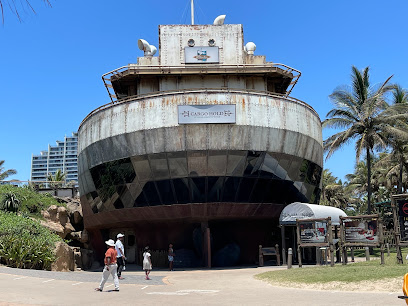
Moses Mabhida Stadium
Discover the architectural beauty and cultural significance of Moses Mabhida Stadium in Durban, a premier destination for sports and tourism.
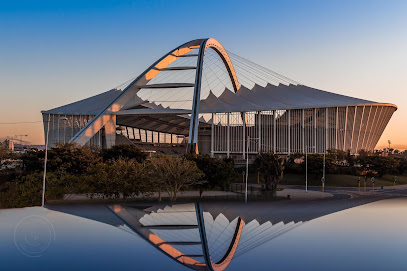
Durban Botanic Gardens
Explore the lush beauty of Durban Botanic Gardens, a serene escape filled with diverse plant species and rich South African heritage.
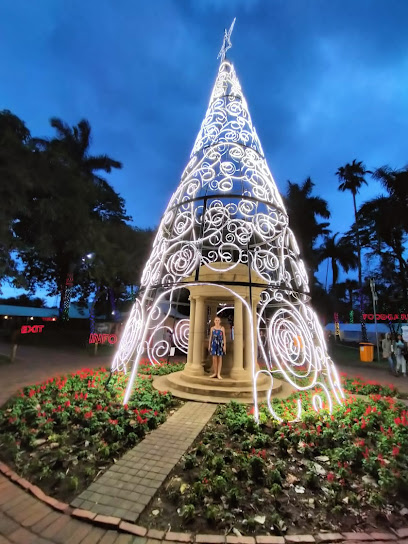
Wilson's Wharf
Experience the vibrant charm of Wilson's Wharf in Durban, where shopping, dining, and adventure come together along the stunning waterfront.
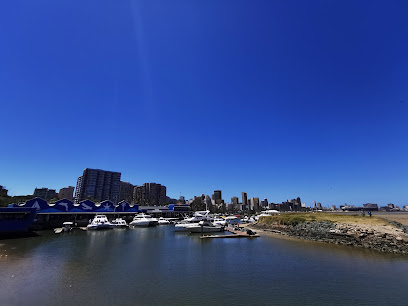
Victoria Street Market
Immerse yourself in local culture at Victoria Street Market, Durban's vibrant hub for crafts, cuisine, and community spirit.
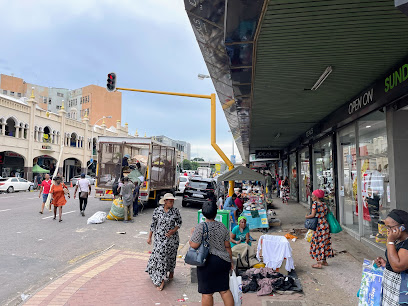
MINITOWN
Experience the charm of Durban's landmarks in miniature at MiniTown, a delightful attraction perfect for families and curious travelers alike.
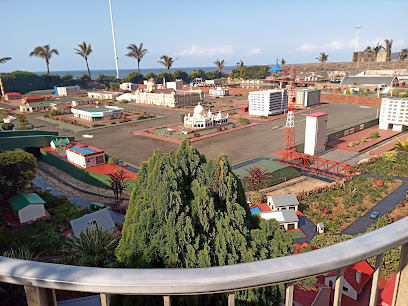
Mitchell Park Zoo
Explore Mitchell Park Zoo in Durban, a perfect blend of wildlife encounters, lush gardens, and educational experiences that delight all ages.
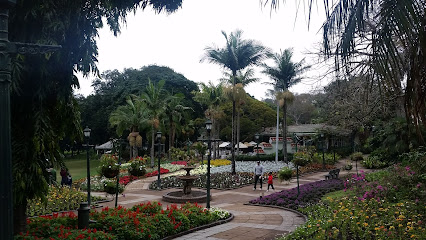
Umgeni River Bird Park
Explore the vibrant Umgeni River Bird Park in Durban, a sanctuary for over 800 birds and an ideal destination for nature lovers and families.
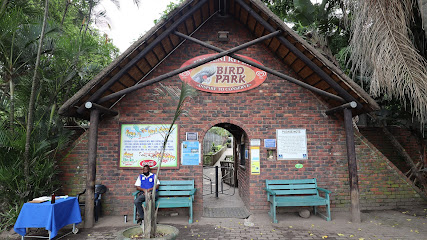
Blue Lagoon Beach
Experience the perfect blend of relaxation and adventure at Blue Lagoon Beach, Durban's stunning coastal escape with golden sands and vibrant culture.
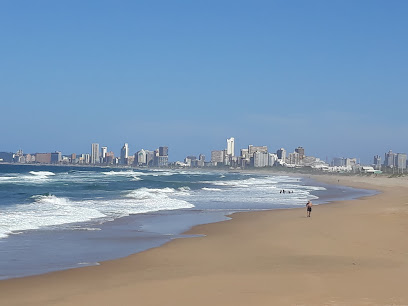
Kenneth Stainbank Nature Reserve
Discover the natural beauty and wildlife of Kenneth Stainbank Nature Reserve, a serene retreat in Durban perfect for nature lovers and outdoor enthusiasts.
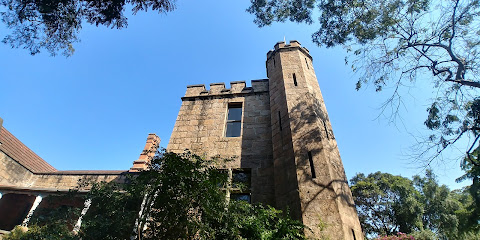
Durban Beach Front Promenade
Experience the sun-kissed beauty and vibrant culture of Durban Beach Front Promenade, a coastal gem along the Indian Ocean.
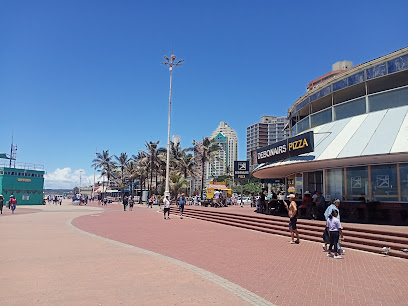
Durban Natural Science Museum
Discover the rich biodiversity and fascinating exhibits at the Durban Natural Science Museum, a must-visit attraction in the heart of Durban.

The Bat Centre
Discover the vibrant cultural scene at The Bat Centre in Durban, an artistic hub that showcases local talent and offers immersive experiences.
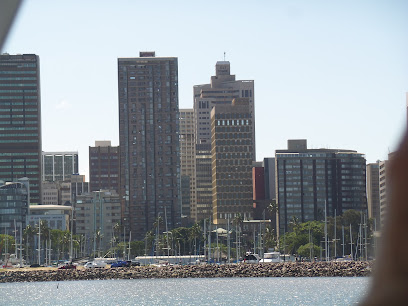
Port Natal Maritime Museum
Discover the rich maritime heritage of Durban at Port Natal Maritime Museum, where history and culture converge on the waterfront.
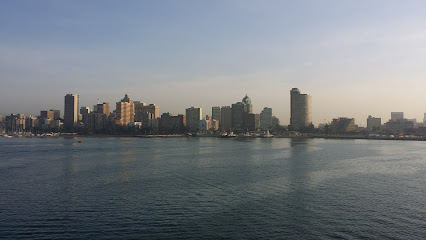
Beachwood Mangroves Nature Reserve
Explore Beachwood Mangroves Nature Reserve in Durban: a serene escape filled with rich biodiversity, scenic trails, and captivating wildlife experiences.
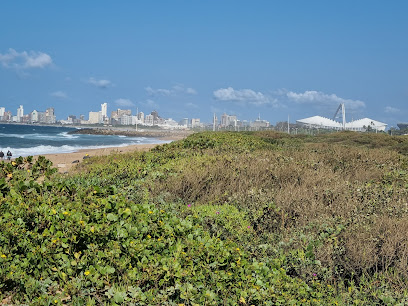
Unmissable attractions to see
uShaka Marine World
Experience the wonders of marine life, adventure-filled water rides, and unforgettable entertainment at uShaka Marine World in Durban.
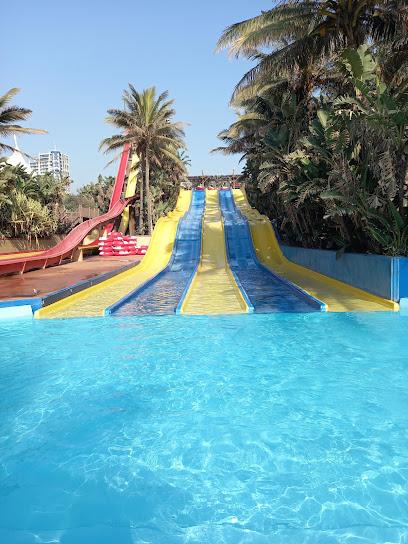
Moses Mabhida Stadium
Explore Moses Mabhida Stadium in Durban, an architectural marvel offering thrilling sports events and breathtaking views of the city and ocean.
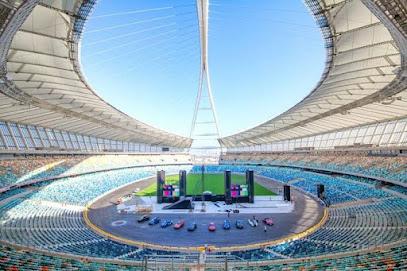
Durban Botanic Gardens
Explore the serene beauty of Durban Botanic Gardens, a lush sanctuary showcasing diverse plant life and rich cultural heritage in the heart of the city.
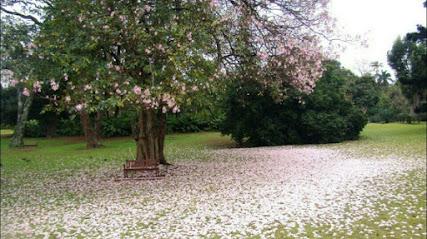
uMhlanga Main Beach
Discover the stunning uMhlanga Main Beach, where golden sands meet vibrant local culture and thrilling ocean adventures await every visitor.
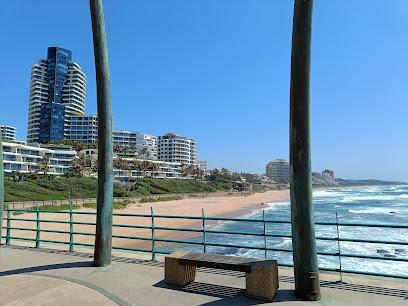
MINITOWN
Explore the enchanting world of MINITOWN in Durban, showcasing a miniature replica of the city with intricate models and vibrant scenes.
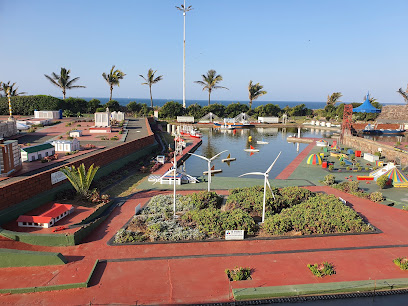
Mitchell Park Zoo
Discover the beauty of wildlife and nature at Mitchell Park Zoo, a family-friendly attraction in Durban offering unforgettable experiences.
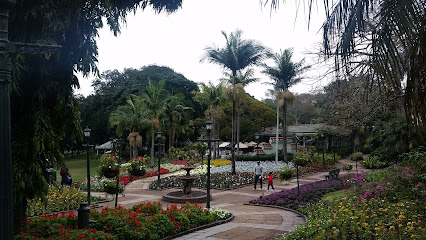
Japanese Gardens
Explore the tranquility of the Japanese Gardens in Durban North – a serene retreat filled with lush landscapes and charming water features.
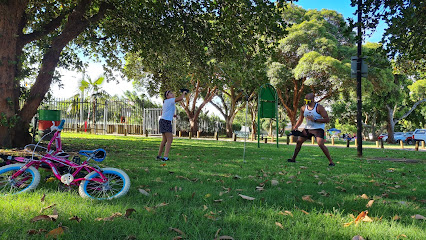
Umgeni River Bird Park
Explore the vibrant Umgeni River Bird Park, home to over 800 bird species in a stunning riverside setting, perfect for nature lovers and families.
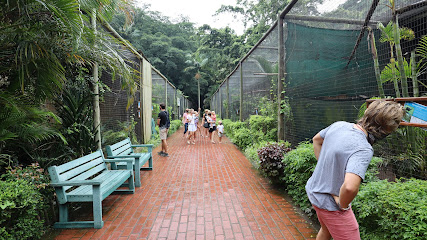
uMhlanga Lagoon Nature Reserve
Experience the natural wonder of uMhlanga Lagoon Nature Reserve, where lush landscapes and diverse wildlife await your exploration in Blackburn, South Africa.
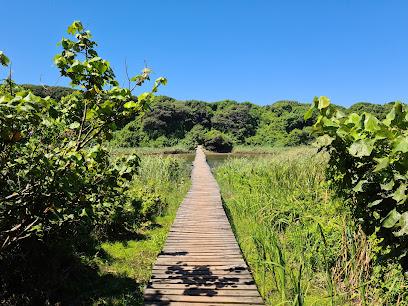
uShaka Sea World
Discover the magic of marine life at uShaka Sea World in Durban - an unforgettable family-friendly adventure awaits!
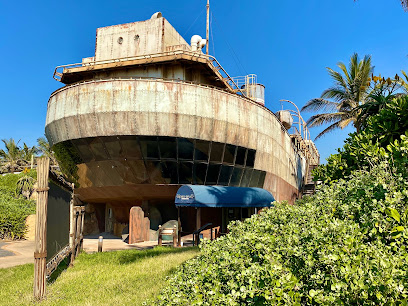
PheZulu Safari Park
Explore the splendor of South Africa's wildlife and Zulu culture at PheZulu Safari Park in Outer West Durban.
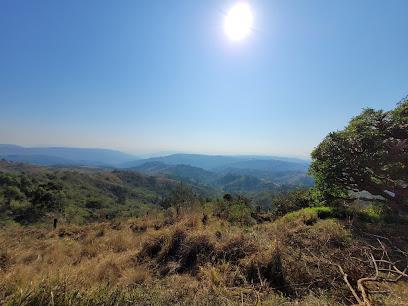
Thompsons Beach
Discover the beauty of Thompsons Beach in Ballito - a family-friendly paradise with stunning views, tidal pools, and safe swimming conditions.
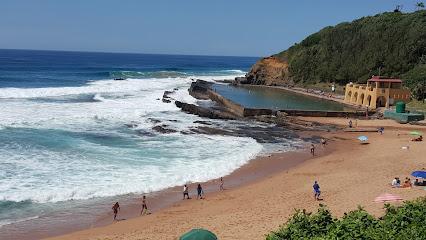
Blue Lagoon Beach
Explore the beauty of Blue Lagoon Beach in Durban - a stunning coastal paradise perfect for relaxation, adventure, and local culture.
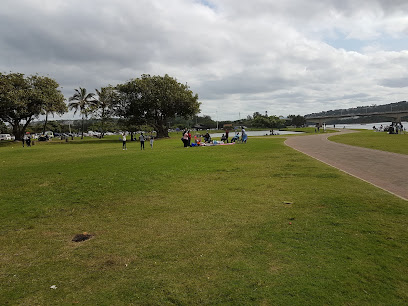
Kenneth Stainbank Nature Reserve
Explore the natural beauty of Kenneth Stainbank Nature Reserve in Durban, a perfect retreat for nature lovers and outdoor enthusiasts alike.
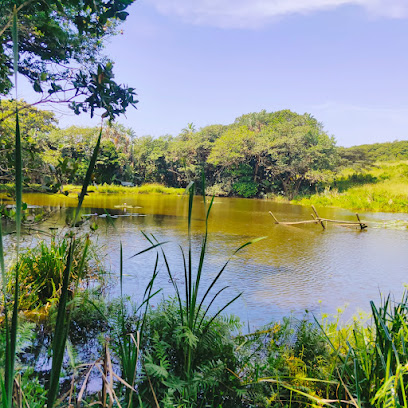
Tala Collection Game Reserve
Discover the breathtaking Tala Collection Game Reserve, where luxury meets wildlife in the heart of South Africa's stunning landscapes.
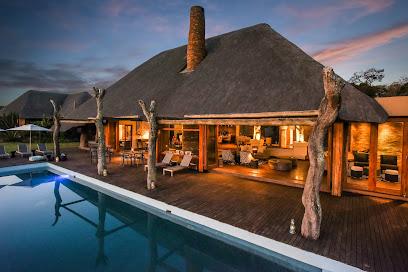
Essential places to dine
Circus Circus Beach Cafe
Experience vibrant dining at Circus Circus Beach Cafe in Durban - where fresh flavors meet stunning ocean views.
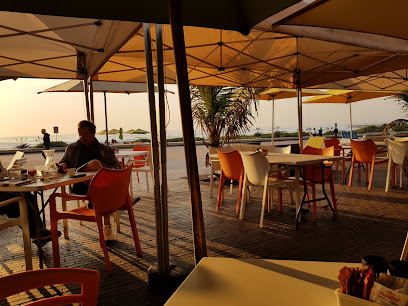
Roma Revolving Restaurant
Discover the exquisite flavors and breathtaking views at Roma Revolving Restaurant in Durban – a must-visit culinary gem.
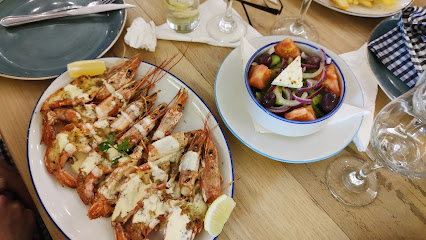
SURF RIDERS SOUTH BEACH @ BEACHFRONT
Experience exquisite dining at Surf Riders South Beach while enjoying stunning ocean views and vibrant local culture in Durban.
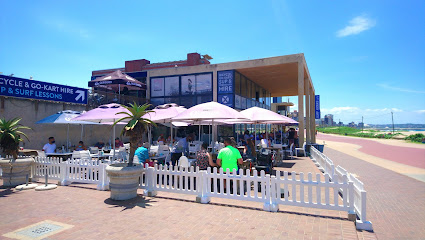
Next Chapter Restaurant
Discover the flavors of Durban at Next Chapter Restaurant—where local ingredients meet global inspiration in a cozy setting.
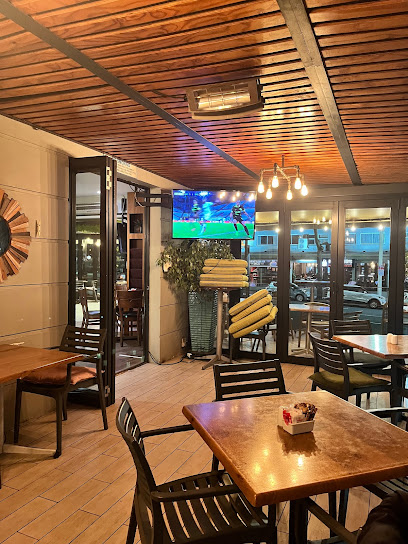
Canecutters Restaurant
Experience authentic South African cuisine at Canecutters Restaurant in Berea - where every meal tells a story of local flavor.
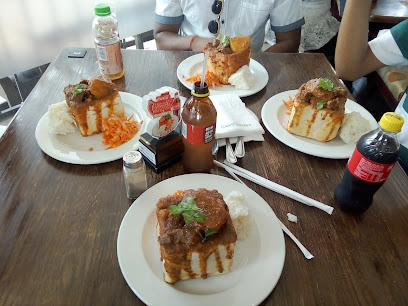
California Dreaming
Discover culinary bliss at California Dreaming, where Durban's coastal charm meets exquisite dining experiences.
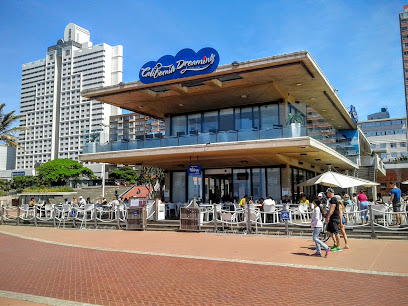
Spiga
Experience authentic Italian cuisine at Spiga in Durban - where every dish tells a story.
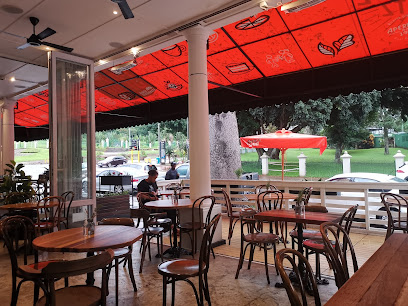
Butcher Boys Morningside
Discover Butcher Boys Morningside: Where succulent steaks meet warm South African hospitality in Durban's vibrant dining scene.
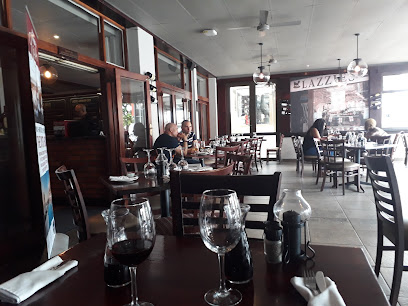
9th Avenue Waterside
Experience the finest European cuisine at 9th Avenue Waterside in Durban's picturesque Harbour - where every meal is a celebration.
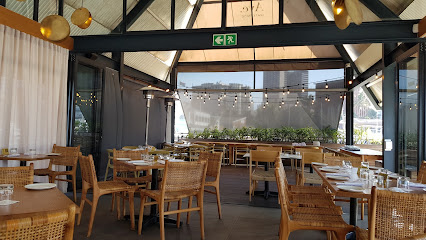
Sunkist Restaurant
Discover the flavors of South Africa at Sunkist Restaurant in Windermere – where exceptional cuisine meets warm hospitality.
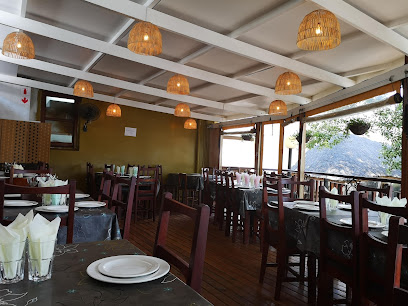
Views at Twenty5
Experience exceptional grilled cuisine in Durban's Morningside with stunning views and vibrant atmosphere at Views at Twenty5.
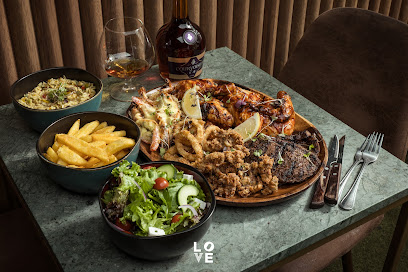
Dropkick Murphy's
Discover Dropkick Murphy's in Windermere: A lively restaurant and bar offering delicious food, refreshing drinks, and vibrant local culture.
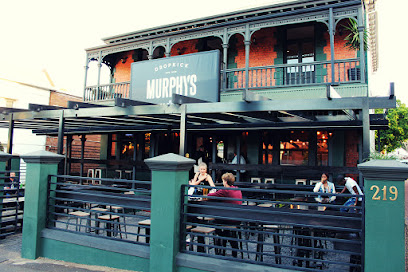
Ku D' Ta Pier
Discover culinary excellence at Ku D' Ta Pier in Durban's uShaka Marine World - where ocean views meet exquisite flavors.
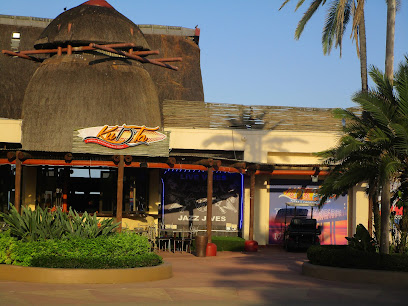
John Dory's Wilson's Wharf
Experience fresh seafood delights and family-friendly dining at John Dory's Wilson's Wharf in Durban.
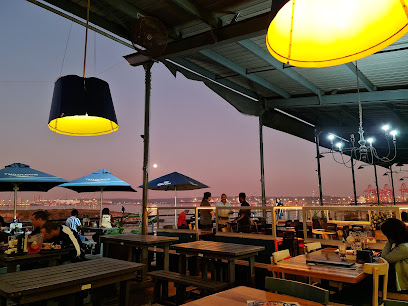
KuD'Ta
Discover Durban's vibrant culinary scene at KuD'Ta – where exquisite dining meets lively nightlife.
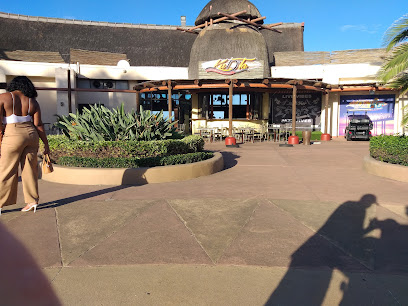
Markets, malls and hidden boutiques
The Pavilion Shopping Centre
Explore The Pavilion Shopping Centre in Westville, where shopping meets entertainment in a vibrant atmosphere, perfect for tourists and locals alike.
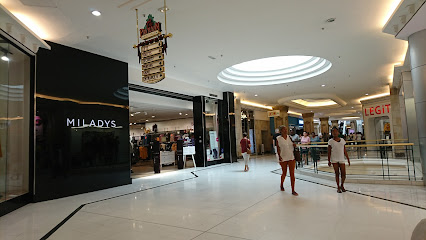
The Workshop Shopping Centre
Discover Durban's vibrant shopping scene at The Workshop Shopping Centre, where diverse stores and delightful dining await every visitor.
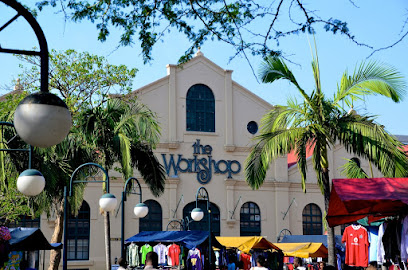
Springfield Value Centre
Discover the vibrant shopping scene at Springfield Value Centre, featuring diverse retail outlets and delightful dining options in Durban.
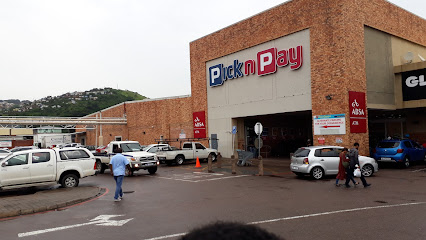
Victoria Street Market
Explore the lively Victoria Street Market in Durban, a cultural shopping hub filled with local crafts, delicious food, and vibrant atmosphere.
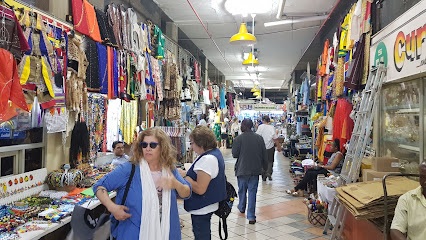
uShaka Village Walk
Discover the cultural and shopping delights of uShaka Village Walk, a vibrant shopping mall in Durban showcasing local craftsmanship and cuisine.
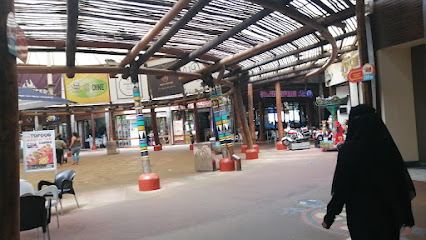
Beachview Mall
Discover Beachview Mall, Durban's vibrant retail hub with diverse stores, dining options, and entertainment for a perfect shopping experience.
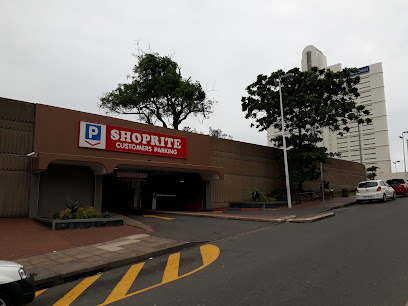
Excess Factory Shop
Explore the vibrant Excess Factory Shop in Durban for unbeatable deals on quality products and a unique shopping experience.
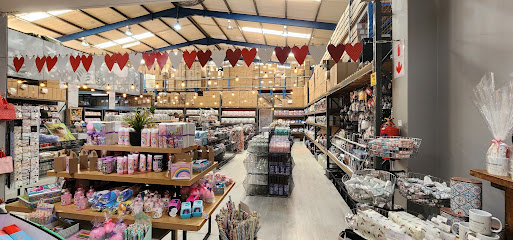
Eclectic
Explore a unique collection of antiques, vintage clothing, and collectibles at Eclectic, a hidden gem in Morningside, Durban.
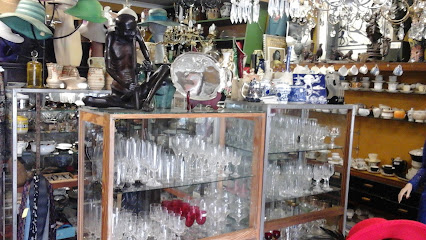
Tùrkiye Durban Boutique
Explore Tùrkiye Durban Boutique for unique women's fashion that combines contemporary trends with local flair, perfect for every stylish traveler.
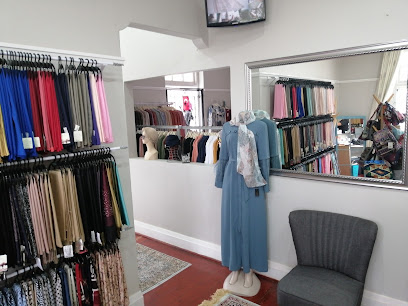
JAM Clothing - 320 West Street
Explore the vibrant fashion choices at JAM Clothing in Durban, where style meets affordability for every traveler.
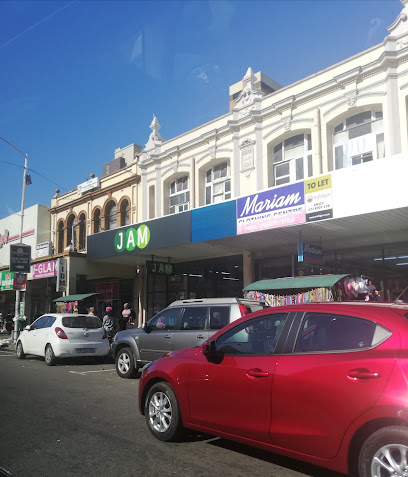
The Space
Explore The Space in Durban for unique women's fashion that combines local talent with trendy styles for every occasion.

Design International Eastern Wear Boutique and Bakery
Discover a unique blend of traditional eastern clothing and delightful baked goods in the heart of Durban's Morningside.
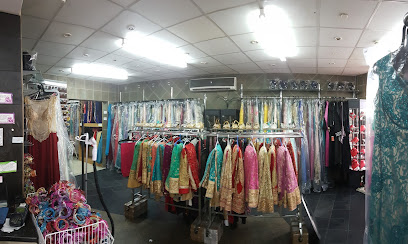
Heart Stuff
Discover Heart Stuff, Durban North's premier women's clothing store showcasing stylish apparel and local designers for every fashion enthusiast.
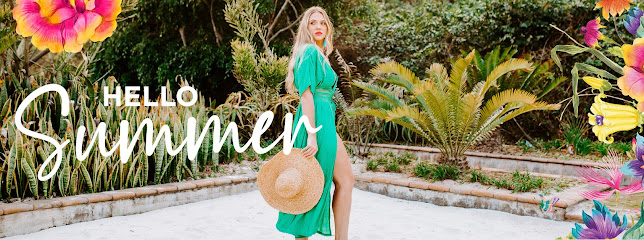
Gorgeous on Florida
Explore Gorgeous on Florida, a premier women's boutique in Durban offering unique, high-quality fashion and accessories for the discerning shopper.
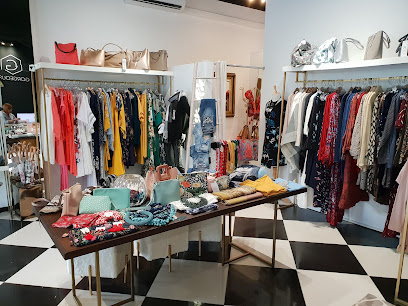
Bubbles Gift Shop
Explore Bubbles Gift Shop in Sydenham, Durban for unique gifts and souvenirs that embody the spirit of South Africa's vibrant culture.
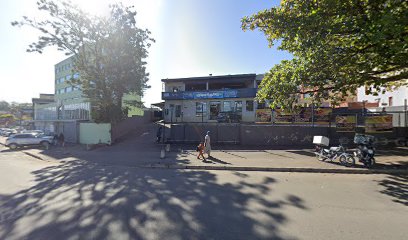
Essential bars & hidden hideouts
Amsterdam Bar & Grill
Explore Durban's vibrant culinary scene at Amsterdam Bar & Grill, where exceptional grilled dishes meet a lively bar atmosphere.
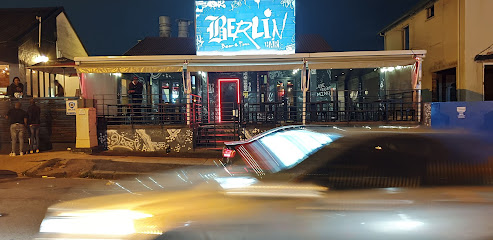
Views at Twenty5
Experience the best of Durban's culinary scene at Views at Twenty5, where delicious grill dishes meet breathtaking views.
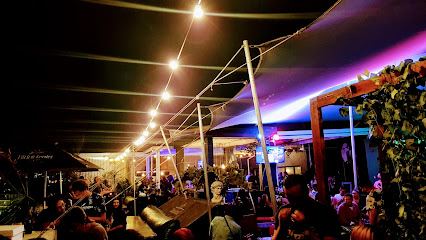
Unity Bar & Brasserie
Discover the vibrant atmosphere and delectable flavors at Unity Bar & Brasserie, a must-visit spot for food lovers in Durban.
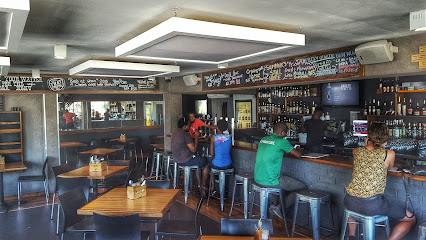
Crowbar Riverside
Discover Crowbar Riverside, a vibrant pub and restaurant in Durban North, perfect for enjoying local food and drinks in a lively atmosphere.
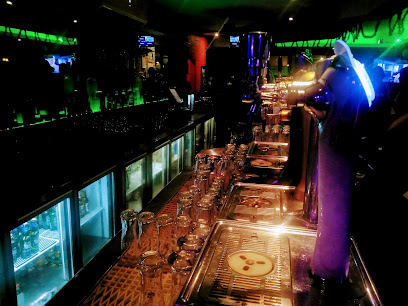
Plush Pub & Grill
Discover the vibrant flavors of Durban at Plush Pub & Grill, where delicious cuisine meets a lively atmosphere in the heart of the city.

The Chairman
Discover the vibrant fusion of art, jazz, and cocktails at The Chairman, Durban's premier nightlife destination.
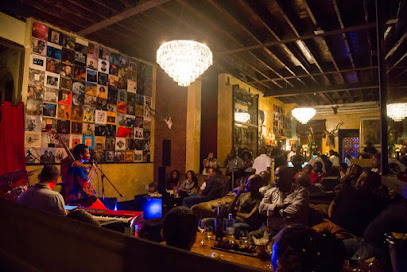
Cool Runnings
Experience the vibrant nightlife of Durban at Cool Runnings, a bar where great drinks and lively entertainment converge for an unforgettable evening.
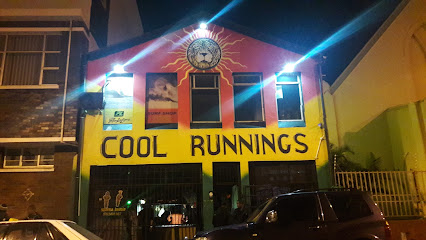
Joe Cools
Discover the vibrant nightlife and delicious dining at Joe Cools, the ultimate entertainment venue along Durban's picturesque Marine Parade.
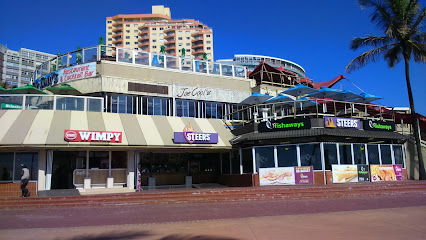
The Winston Pub
Discover the lively charm of The Winston Pub in Glenwood, Durban, where vibrant nightlife meets South African hospitality in an unforgettable setting.
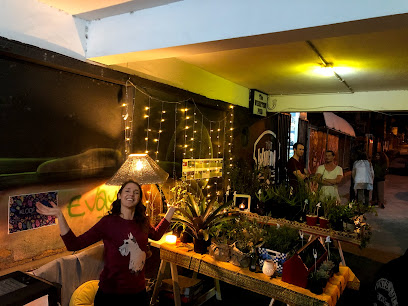
The Panorama Bar
Experience breathtaking ocean views and exquisite cocktails at The Panorama Bar, Durban's premier cocktail destination.
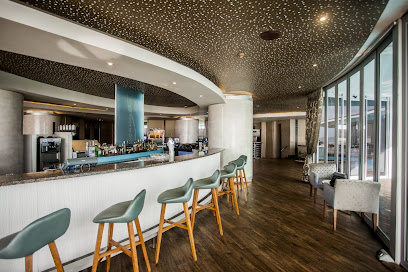
Super B Cocktail Bar And Lounge
Discover the lively atmosphere and exceptional cocktails at Super B Cocktail Bar and Lounge in Durban, the ultimate destination for nightlife enthusiasts.

Escape Bar & Restaurant
Experience the vibrant nightlife and delicious local cuisine at Escape Bar & Restaurant in the heart of Durban.

YDE PUB
Experience the vibrant atmosphere of YDE PUB, a local favorite in Durban Central, where craft beers and delicious bites await every traveler.
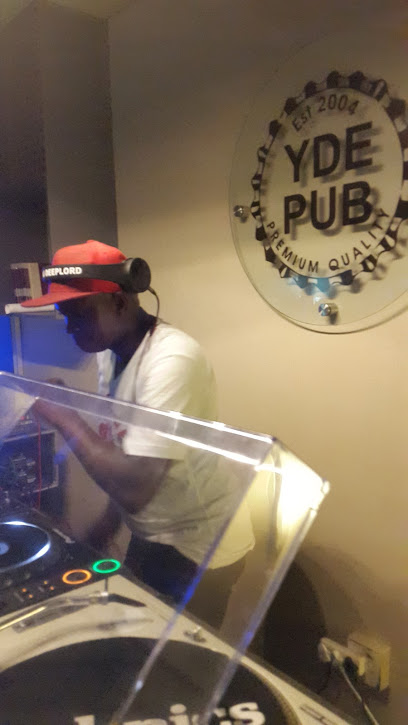
Koko Bar
Experience the vibrant nightlife at Koko Bar in Durban's South Beach with lively music, great drinks, and an unforgettable atmosphere.
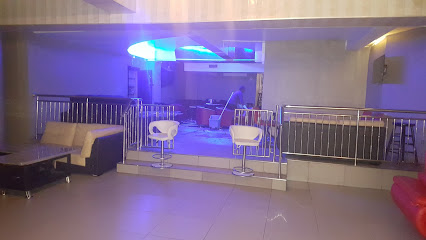
Local Phrases
-
- HelloSawubona
[sah-woo-BOH-nah] - GoodbyeHamba kahle
[HAM-bah KAH-leh] - YesYebo
[YEH-boh] - NoCha
[CHAH] - Please/You're welcomeNgiyacela
[ing-YAH-seh-lah] - Thank youNgiyabonga
[ing-yah-BOHN-gah] - Excuse me/SorryUxolo
[oo-SOH-loh] - How are you?Unjani?
[oon-JAH-nee] - Fine. And you?Ngiyaphila. Wena?
[ing-yah-PEE-lah. WEH-nah] - Do you speak English?Uyafuna ukuthetha isiNgisi?
[oo-yah-FOO-nah oo-koo-THEH-tah is-ee-NGEE-see] - I don't understandAngazi
[ahn-GAH-zee]
- HelloSawubona
-
- I'd like to see the menu, pleaseNgiyafuna ukubona iminikelo, ngiyacela
[ing-yah-FOO-nah oo-koo-BOH-nah ee-mee-nee-KAY-lo, ing-YAH-seh-lah] - I don't eat meatAngiyi kudla inyama
[ahn-GEE-yee koo-DLA ee-NYAH-mah] - Cheers!Ongakhetha
[ohn-gah-KHEH-tah] - I would like to pay, pleaseNgiyafuna ukulipha, ngiyacela
[ing-yah-FOO-nah oo-koo-LEE-pah, ing-YAH-seh-lah]
- I'd like to see the menu, pleaseNgiyafuna ukubona iminikelo, ngiyacela
-
- Help!Usizo!
[oo-SEE-zoh] - Go away!Hamba!
[HAM-bah] - Call the Police!Vula amaphoyisa!
[voo-LAH ah-mah-poh-YEE-sah] - Call a doctor!Vula udokotela!
[voo-LAH oo-doh-koh-TEH-lah] - I'm lostNgihlupheka
[ng-ee-loo-PHEH-kah] - I'm illNgisemosheni
[ng-ee-seh-MOH-sheh-nee]
- Help!Usizo!
-
- I'd like to buy...Ngiyafuna ukuthenga...
[ing-yah-FOO-nah oo-koo-THEH-ngah] - I'm just lookingNgicabanga kuphela
[ng-ee-chah-BAH-ngah koo-PEH-lah] - How much is it?Kuyaphi?
[koo-YAH-pee] - That's too expensiveLokhu kungakwaziyo okukhulu kakhulu
[loh-KOO koon-gah-KWAH-zee-yoh oh-koo-KHOO-loo kah-KHOO-loo] - Can you lower the price?Ungakwazi ukushitsha iphesa?
[oon-gah-KWAH-zee oo-koo-SHEET-shah ee-PHEH-sah]
- I'd like to buy...Ngiyafuna ukuthenga...
-
- What time is it?Ngubani ihora?
[ng-oo-BAH-nee ee-HO-rah] - It's one o'clockKuyihora yokuqala
[koo-yee-HO-rah yoh-koo-KAH-lah] - Half past (10)Ngemuva kokulandela (ishumi)
[ng-eh-MOO-vah koo-koo-LAHN-deh-lah ee-SHOO-mee] - MorningEbusuku
[eh-boo-SOO-koo] - AfternoonEmuva kwesontondlo
[eh-MOO-vah kweh-sohn-TOHND-loh] - EveningEbusuku
[eh-boo-SOO-koo] - YesterdayIzolo
[ee-ZOH-loh] - TodayNamuhla
[nah-MOOH-lah] - TomorrowKusasa
[koo-SAH-sah] - 1Kunye
[koo-NYEH] - 2Kubili
[koo-BEE-lee] - 3Kuthathu
[koo-TAH-too] - 4Kune
[koo-NEH] - 5Kuhlanu
[koo-HLAH-noo] - 6Isithupa
[ee-see-TOO-pah] - 7Isikhombisa
[ee-see-KHOHM-bee-sah] - 8Isishiyagalombili
[ee-see-shyah-gah-LOHM-bee-lee] - 9Isishiyagalolunye
[ee-see-shyah-gah-loh-LOO-nyeh] - 10Isishiyagalombili
[ee-see-shyah-gah-LOHM-bee-lee]
- What time is it?Ngubani ihora?
-
- Where's a/the...?Kuyaphi...
[koo-YAH-pee] - What's the address?Ikheli elikuphi?
[ee-KHEH-lee eh-lee-KOO-pee] - Can you show me (on the map)?Ungakwazi ukubonisa mina (emephu)?
[oon-gah-KWAH-zee oo-koo-BOH-nee-sah MEE-nah (eh-MEH-poo)] - When's the next (bus)?Kuyaphi i-ntuthuko esilandelayo?
[koo-YAH-pee ee-n-too-THOO-koh eh-see-lahn-deh-LAH-yoh] - A ticket (to ....)Ikhiti (kusuka ...)
[ee-KHEE-tee (koo-SOO-kah ...)]
- Where's a/the...?Kuyaphi...
History of Durban
-
Durban, originally known as Port Natal, was established as a European settlement in 1824 when British settlers arrived. Henry Francis Fynn, a British trader, played a key role in establishing relations with the Zulu King Shaka, leading to the establishment of the settlement. The town was later renamed Durban in honor of Sir Benjamin d'Urban, the then Governor of the Cape Colony.
-
During the colonial era, Durban saw significant growth and development. The British colonial administration established infrastructure such as roads, railways, and ports. The city became a major hub for trade and commerce, especially with the sugarcane industry booming in the 1860s. The Indian indentured laborers brought to work on sugar plantations also added to the cultural mosaic of Durban.
-
Durban holds a special place in the history of Mahatma Gandhi. It was here, in 1893, that Gandhi, a young lawyer, experienced discrimination which led him to develop his philosophy of Satyagraha (non-violent resistance). Gandhi’s time in Durban was pivotal in shaping his future role as a leader in the struggle for Indian independence and civil rights.
-
The Anglo-Zulu War of 1879 had a profound impact on Durban. The conflict between the British Empire and the Zulu Kingdom resulted in significant changes to the region. Although the war did not take place within Durban itself, the city served as a strategic point for British military operations and logistics.
-
Durban’s port has been instrumental in the city’s economic development. Established in the mid-19th century, it grew to become the busiest port in Africa. The construction of the Durban Harbour in 1855 and subsequent expansions have made it a critical node for maritime trade, contributing significantly to the city's prosperity.
-
During the apartheid era, Durban, like the rest of South Africa, was deeply affected by the policies of racial segregation. The Group Areas Act led to the forced removal of non-white communities from central areas. However, Durban was also a center of resistance, with significant anti-apartheid activities and leaders emerging from the city. The 1973 Durban Strikes were a major turning point in the labor movement against apartheid.
-
The end of apartheid in 1994 marked a new era for Durban. The city has undergone significant transformation, with efforts to address past inequalities and promote economic development. Durban became part of the eThekwini Metropolitan Municipality, which focuses on inclusive growth and development. The city's cultural diversity and heritage have also been celebrated and preserved in this new era.
-
Durban is a vibrant cultural melting pot, with influences from Zulu, Indian, and colonial heritage. The annual Durban July, a prestigious horse racing event, and the Durban International Film Festival are key cultural highlights. The city’s cuisine, markets, and festivals reflect this rich tapestry of cultures, making it a unique and dynamic destination.
Durban Essentials
-
Durban is served by King Shaka International Airport (DUR), located approximately 35 kilometers north of the city center. The airport offers both domestic and international flights. There are regular shuttle services, taxis, and ride-hailing options like Uber and Bolt available to take you from the airport to your accommodation. Additionally, Durban is well connected by road and rail, making it accessible from other major South African cities such as Johannesburg and Cape Town.
-
Public transportation in Durban includes buses operated by the eThekwini Municipality, as well as minibus taxis that are widely used by locals. For tourists, ride-hailing services like Uber and Bolt offer a convenient and relatively safe option for getting around. Car rentals are available and can be a good option if you plan to explore areas outside the city. The People Mover buses are a tourist-friendly option, offering routes that cover major attractions within the city.
-
The official currency in South Africa is the South African Rand (ZAR). Credit and debit cards are widely accepted in Durban, especially in hotels, restaurants, and larger stores. ATMs are plentiful and can be found throughout the city. It is advisable to carry some cash for small purchases, especially in local markets and smaller establishments. Foreign exchange services are available at the airport, banks, and currency exchange offices.
-
While Durban is generally safe for tourists, it is important to remain vigilant. Areas such as the Central Business District (CBD) and certain parts of the beachfront can have higher crime rates, particularly at night. Avoid walking alone after dark and keep your belongings secure in crowded areas. Stick to well-lit, busy streets, and consider using ride-hailing services for transportation during late hours.
-
In case of emergency, dial 10111 for police assistance, 10177 for medical emergencies, and 112 from a mobile phone for general emergency services. Major hospitals like Netcare St. Augustine’s Hospital and Inkosi Albert Luthuli Central Hospital offer emergency medical services. Pharmacies are readily available for minor health issues. Always have travel insurance that covers medical emergencies.
-
Fashion: Do dress comfortably and appropriately for the weather. Avoid wearing flashy jewelry and carrying expensive items in public. Religion: Do respect local customs, especially when visiting religious sites. Remove your hat and avoid loud conversations in these places. Public Transport: Do use registered taxis or ride-hailing services for safety. Don’t use unmarked minibus taxis. Greetings: Do greet people with a friendly 'hello' or 'howzit.' A handshake is common in more formal settings. Eating & Drinking: Do try local dishes like bunny chow and Durban curry. Don’t refuse food offerings, as it can be considered impolite.
-
To experience Durban like a local, visit the Victoria Street Market for a blend of African and Indian cultures. Spend time at the Golden Mile beachfront, where you can enjoy surfing, swimming, and people-watching. Don’t miss a visit to the Moses Mabhida Stadium, where you can take a SkyCar ride for panoramic views of the city. For an authentic cultural experience, explore the township of Umlazi with a local guide.
Trending Landmark in Durban
-
uShaka Marine World
-
Moses Mabhida Stadium
-
Durban Botanic Gardens
-
Wilson's Wharf
-
Victoria Street Market
-
MINITOWN
-
Mitchell Park Zoo
-
Umgeni River Bird Park
-
Blue Lagoon Beach
-
Kenneth Stainbank Nature Reserve
-
Durban Beach Front Promenade
-
Durban Natural Science Museum
-
The Bat Centre
-
Port Natal Maritime Museum
-
Beachwood Mangroves Nature Reserve
Nearby Cities to Durban
-
Things To Do in Mokhotlong
-
Things To Do in Thaba-Tseka
-
Things To Do in Butha-Buthe
-
Things To Do in Leribe
-
Things To Do in Quthing
-
Things To Do in Teyateyaneng
-
Things To Do in Mohale's Hoek
-
Things To Do in Maseru
-
Things To Do in Big Bend
-
Things To Do in Mafeteng
-
Things To Do in Malkerns
-
Things To Do in Manzini
-
Things To Do in Mbabane
-
Things To Do in Mhlume
-
Things To Do in Maputo












